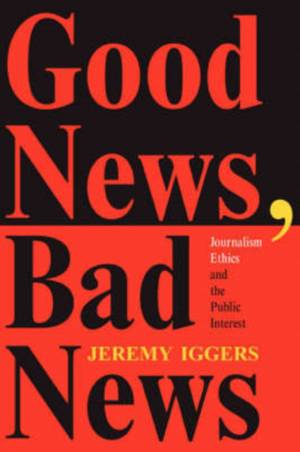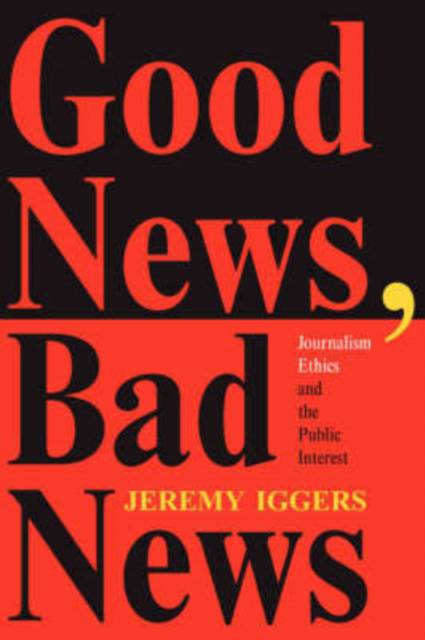
- Afhalen na 1 uur in een winkel met voorraad
- Gratis thuislevering in België vanaf € 30
- Ruim aanbod met 7 miljoen producten
- Afhalen na 1 uur in een winkel met voorraad
- Gratis thuislevering in België vanaf € 30
- Ruim aanbod met 7 miljoen producten
Zoeken
€ 90,45
+ 180 punten
Uitvoering
Omschrijving
Public dissatisfaction with the news media frequently gives rise to calls for journalists to live up to the ethical standards of their profession. But what if the fault lies in part with the standards themselves?Jeremy Iggers argues that journalism's institutionalized conversation about ethics largely evades the most important issues regarding the public interest and the civic responsibilities of the press. Changes in the ownership and organization of the news media make these issues especially timely; although journalism's ethics rest on the idea of journalism as a profession, the rise of market-driven journalism has undermined journalists' professional status.Ultimately, argues Iggers, journalism is impossible without a public that cares about the common life. A more meaningful approach to journalism ethics must begin with a consideration of the role of the news media in a democratic society and proceed to look for practical ways in which journalism can contribute to the vitality of public life.Written in an accessible style, Good News, Bad News is important reading for journalists, communication scholars, and students.
Specificaties
Betrokkenen
- Auteur(s):
- Uitgeverij:
Inhoud
- Aantal bladzijden:
- 192
- Taal:
- Engels
- Reeks:
Eigenschappen
- Productcode (EAN):
- 9780813329529
- Verschijningsdatum:
- 3/09/1999
- Uitvoering:
- Paperback
- Formaat:
- Trade paperback (VS)
- Afmetingen:
- 154 mm x 230 mm
- Gewicht:
- 299 g

Alleen bij Standaard Boekhandel
+ 180 punten op je klantenkaart van Standaard Boekhandel
Beoordelingen
We publiceren alleen reviews die voldoen aan de voorwaarden voor reviews. Bekijk onze voorwaarden voor reviews.











